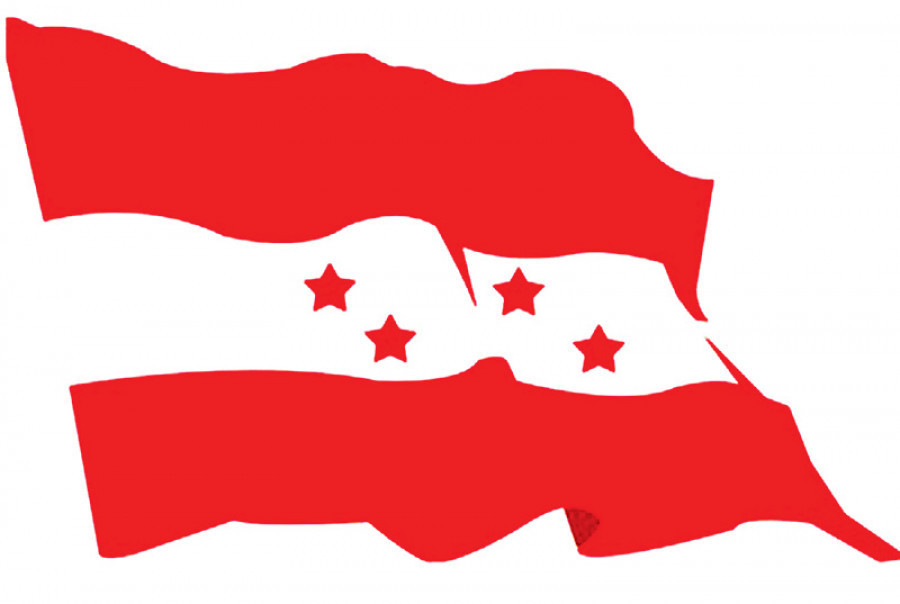Politics
Dispute in Congress over election seats as leaders want a bigger bite for the party
While Deuba appears ready for a compromise, several leaders insist party should not settle for less than 100 seats.
Nishan Khatiwada
The Nepali Congress is caught in a conundrum over how many seats to claim—as the ongoing seat-sharing talks in the ruling coalition have got knottier with all the political parties seeking bigger bites of the 165 lower house seats.
According to party insiders, Deuba has appeared flexible over the party’s demands for seats—he is reportedly ready to compromise a few seats if necessary—so as to keep the coalition intact.
On the other hand, many other leaders of the party have remained adamant on their demand for not less than 100 seats.
Gagan Thapa, the party general secretary, has been vocal that the party should claim 100 seats. And Sitaula, a member of the task force, seems ready to settle for 90, insiders say.
Speaking at the party’s Provincial Assembly Regional Conference, Thapa said the formula for the seat-sharing arrangements should not be based on the seats won by the parties in the 2017 elections. “Such a modality will bring dissatisfaction in the party,” he said.
Similarly, speaking to journalists in Chitwan on Friday, Nepali Congress leader Shashank Koirala said that the seats should be split based on the realities of the last local elections. He further claimed the party should get 95-100 seats.
Another leader, Shekhar Koirala, speaking at a function in Morang on Saturday, said that his party should not agree to less than 100 seats. “Nepali Congress is capable of fighting the polls single-handedly. But, it has continued the coalition because of unfavorable circumstances. We can’t fight elections with less than 100 seats,” he said.
Deuba, however, is flexible and open to compromising some seats.
“Our party president is of the view that it would be unfortunate if the parties broke the coalition over a dispute for a few more seats,” said Min Bahadur Bishwakarma, Nepali Congress whip. “To conclude the seat sharing arrangement at the earliest possible, all the parties need to have a common understanding and be flexible enough,” he told the Post.
Party leaders have been pressuring Deuba to stay firm in the claim for 100 seats, according to insiders.
“Party leaders are piling pressure on the president to stick to the claim for 100 seats, otherwise, it will be difficult for the party to unify leaders and improve its prospects,” said a Nepali Congress Central Working Committee member on condition of anonymity.
The coalition on August 5 had formed the task force to work out arrangements for seat-sharing. On Thursday, when the coalition partners put forth their seat claims, the total exceeded the available number of seats.
Of the 165 seats under the direct election system that are to be distributed among the five constituents, Congress laid claim to 100, the Maoist Centre to 60, the Unified Socialist to 40, the Janata Samajbadi Party to 32, and the Rastriya Janamorcha to 2. The claims are too heavy to manage.
Gururaj Ghimire, a Nepali Congress leader, says most of the party leaders will be dissatisfied if the party gets less than 100 seats. Looking at the number of candidate hopefuls in the party, even the 165 seats will not be enough, he adds.
After the Nepali Congress issued a circular on August 25 to disallow the repetition of lawmakers in the proportional representation category, 40 lawmakers of the party including some key leaders will be deprived of the chance to contest in the elections. This will make the process of selecting candidates for direct elections even more challenging.
According to Ghimire, other parties in the ruling coalition want only half of the total seats to be set aside for the Congress and the rest for themselves. “But, if our party does not get around 100 seats, key leaders will be deprived of the chance to fight elections. Also if we leave too many seats for the coalition, the party’s position will shrink,” he told the Post. “Party president should not ignore the reality of the party while being flexible. Poor management of party leaders in the polls will lead to disaster.”
Puranjan Acharya, a political analyst, agrees Congress is divided over seat-sharing—some leaders including Deuba and Ram Chandra Poudel want to be as flexible as they can to continue the ruling coalition, while some claim their party is the strongest and should stick to the demand for 100 seats.
Allocating more than 60 seats to other parties will benefit the UML in the polls, Acharya adds. “A large chunk of Nepali Congress voters will have to vote for communist parties that lack a strong voter base. The more seats the NC cedes, the more difficult the transfer of votes will be,” he said, adding that the Nepali Congress could witness infighting if it has to settle for fewer seats.




 13.12°C Kathmandu
13.12°C Kathmandu














